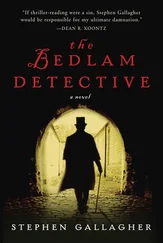I got drunk with Dad after my last deployment and told him everything. Something he quoted has stuck ever since: “He, too, has resigned his part In the casual comedy; He, too, has been changed in his turn, Transformed utterly: A terrible beauty is born.”
It’s from a Yeats poem about the Irish revolution, which I’m sure you already know. (I’ll admit to having to look that up. No poetry classes in B-school.) But — those words. Those fucking words. This isn’t very profound or anything, but they’ve helped me. Maybe they’ll help you too.
I fear I’m lecturing again. Or rambling. Both are nasty habits. Maybe finding a local willing to write a sworn statement is the solution. Maybe reporting everything you know is. Maybe doing nothing is. Point is, you’ll figure out what to do, as a leader, as a man. Pray. Think. And act. Just do what you feel is right. Everything else will fall into place.
Since most of this letter has been all about kissing your scrawny ass, I’ll point out that you were wrong about one thing. “Be safe and be strong” is not bullshit. It’s all I have to offer from over here, but that doesn’t make it disingenuous. So. Be safe. Be strong. And get the fuck home, you crazy goon. We need you.
With love and respect,
Will
There’d been a lot of questions about what had happened in the graveyard. The Big Man had found my lack of understanding of Coalition protocol “alarming,” though he blamed Captain Vrettos for that more than me. After I’d stood at attention in his office for thirty minutes, silently counting his analogies to football, the Big Man dismissed me with one last piece of counsel: “We can’t save them all. I know your heart’s in the right place. But as an officer, your head’s got to be in the right place. Remove it from your asshole. Now.”
If nothing else, I appreciated the vividness of the order.
The intelligence officer proved more skeptical and probing than the Big Man. “I don’t understand,” he kept repeating. “The Cleric is dead. Both of them. So why were you out there?”
It was the look of betrayal on Captain Vrettos’ face when we returned to the outpost, though, that left spots on the soul.
As for Rana, we’d entered into an unspoken understanding that day at Camp Independence — she was a source, nothing more, who’d begged us to save her child. She’d played her role well, better than I’d played mine. I wasn’t sure we’d speak again. I wasn’t sure that was such a bad thing, either.
Then, a week later, Snoop woke me from a nightmare. He pressed his cell phone into my hands.
“It’s her,” he said.
I stumbled into the lit hallway, not bothering to find my fleece top or boots. My watch said it was almost dawn.
“Sorry if I woke you.” Her voice sounded hoarse through the grainy connection.
“How is he?” I tried not to interrupt but couldn’t help it. “Is Ahmed okay?”
“He is.” I was overwhelmed with relief. “I’ve kept him inside, though he says he’s going out today no matter what.”
“What happened? The last — the last I saw, the medics had to strap him down, he was shaking so much.”
She clucked her tongue at the memory, and I could practically see her pacing the carpets, looking out a front window to watch the sun rise over her garden. “They gave him a shot to make him sleep, then medicine for the poison. We stayed until the night, when he woke up and could walk. Then they called a taxi. The doctors were very good.”
“I would’ve stayed,” I said. “I just couldn’t.”
“Jack, you did so much. You did your duties, the doctors did theirs.”
Something about the way she enunciated the word “duties” made me consider just what those duties were. There’d been a time before when I’d thought those duties meant “The Mission.” Then I’d thought it meant protecting the soldiers in my platoon, from the war, from battalion, from themselves. I’d neglected those duties recently. After Ahmed’s emergency ride, I was certain they’d mutiny, but the exact opposite happened: they revered me now, nicknaming me Iceberg Slim and telling other soldiers I was the only lieutenant in the entire army worth a fuck. One night, late, I’d asked Dominguez about it.
“If you’re enlisted over here, you get used to doing stupid shit that doesn’t make sense,” he’d said. “That was stupid, sure, but it made sense. And you did it cool, relaxed. Makes you different than most officers.”
It was nice, being admired for once.
“I wanted to stay with you all,” I said to Rana again. “But I couldn’t.” The conversation felt strangely vacant, and I couldn’t blame it entirely on the connection. I was about to ask when I could come visit again when she said she needed to talk to me about something else. Something complicated.
She was right about that. Her husband had returned home the previous night demanding to know about the new American she met with, the new American who’d gotten Ahmed bitten by a viper. She’d denied everything, blaming it on gossip from jealous townspeople. Even her sons had lied, saying they wished the Americans would come and play, they’d be happier if they did. He hadn’t believed them.
“I don’t think we’re safe with him, not anymore,” she said.
He’d left for work just before she called. She hadn’t known whom else to turn to. All her close friends and family were either dead or had fled the country.
“To where?” I asked.
“Beirut,” she said. Most Iraqi refugees ended up in Jordan or Syria, but Beirut is where they all wanted to be, where she now planned to go, no matter what. She needed to get her boys away from the war that’d taken so much, away from a husband who’d taken so much, away from a home that’d taken everything. I asked how I could help.
“There’s a smuggler in Ashuriyah,” she said. “A people smuggler. They say he’s the best.”
His name was Yousef. He owned a falafel shop in town. “Yes,” I said. “I know who he is.”
She asked if I could ask him what it would cost to get a woman and two children to Beirut as soon as possible. We still owe her for saving us, I told myself. That’s why I’ll do this.
She thanked me for helping and said she needed to make her boys breakfast. Her voice scratched out with a simple good-bye. I sat there on the sandbags shivering in the early morning chill, body tingling with a thrill I couldn’t define but recognized from another time and place.
I walked across the outpost to return the phone to Snoop. Our proud citadel was empty and quiet, smelling of mop water. I checked my watch. It was fifteen minutes past six. The other half of the platoon was due back soon from their night mission. It was just a counter-IED patrol, I reminded myself, just driving roads to prove there were no roadside bombs there.
Unless they’d been doing something else.
Snoop sat in a metal folding chair outside the terps’ room, a headlamp strapped to his forehead, reading a translation of C. S. Lewis’ The Screwtape Letters .
He took his phone back. “LT, I didn’t want to wake you, so I made her tell me why she was calling.”
“Uh-huh,” I said.
“I–I hope to go, too. I need to go.”
My eyebrows arched in surprise. I’d need him to speak with Yousef.
“You don’t think there’s a better way for you?” I asked.
He shook his head, the beam from his head moving like an agitated lantern. “It’s the only way,” he said.
I didn’t think that was true, but hadn’t found an alternative, either. I said we’d see what the smuggler thought. He nodded. The heavy shroud of conspiracy draped us both. I owe him, too, I thought. Maybe even more than I owe Rana.
Читать дальше




![Ally Carter - [Gallagher Girls 02 ] - Cross My Heart & Hope To Spy](/books/262178/ally-carter-gallagher-girls-02-thumb.webp)
![Ally Carter - [Gallagher Girls 01] I'd Tell You I Love You But Then I'd Have to Kill You](/books/262179/ally-carter-gallagher-girls-01-i-d-tell-you-i-lo-thumb.webp)






